DJI has introduced the Neo, a small but capable drone designed for vloggers, casual users, and anyone looking to capture high-quality footage without needing extensive drone-flying experience or a license. With its compact size, ease of use, and advanced features, the DJI Neo is an attractive option for those who want to explore aerial photography without the complexity of larger, more expensive drones.
Compact and lightweight design
Weighing just 135 grams (3 ounces), the DJI Neo is exceptionally lightweight. Its size and weight make it easy to transport and, importantly, exempt from the U.S. Federal Aviation Administration (FAA) requirement for a pilot’s license for drones weighing over 250 grams. This feature alone makes the Neo appealing to hobbyists and beginners who want to avoid the hassle of licensing and registration.
Despite its small size, the Neo packs some serious functionality. It’s designed to fit in the palm of your hand and can take off directly from your palm with a simple push of a button or a voice command. In fact, the drone responds to voice commands like “Hey! Fly!” and can be flown without a controller, offering a seamless and user-friendly experience for beginners. Alternatively, users can connect the Neo to their smartphones for more control, or they can pair it with DJI’s other controllers, such as the DJI Goggles 3, RC Motion 3, or the FPV RC 3, for a more immersive flying experience.
Impressive flight capabilities
One of the Neo’s standout features is its ease of use. Whether you’re an experienced drone pilot or a first-timer, the Neo’s pre-programmed flight paths and one-button operation make it accessible to all. It can handle wind speeds of up to 18 mph (29 km/h) and has a range of up to six miles (10 kilometers) when paired with DJI’s controllers.
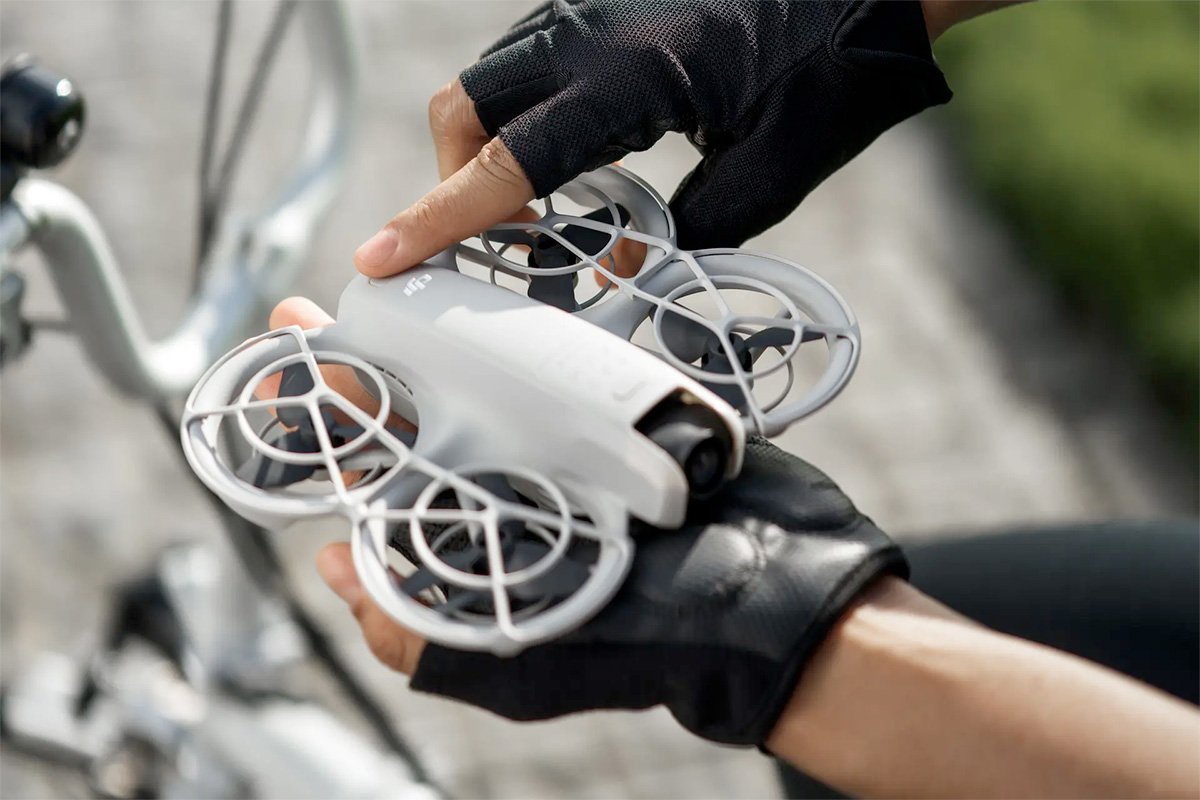
The drone includes a return-to-home (RTH) function, which allows it to automatically fly back to its takeoff point if something goes wrong, such as losing signal or encountering low battery levels. This is an essential safety feature, especially for beginners or users who may not be fully comfortable controlling a drone yet.
However, the Neo does lack obstacle avoidance. While this may be a limitation for some, its propeller guards offer some level of protection in case of collisions with objects like tree branches. The drone is designed to be sturdy and can handle minor bumps without damage.
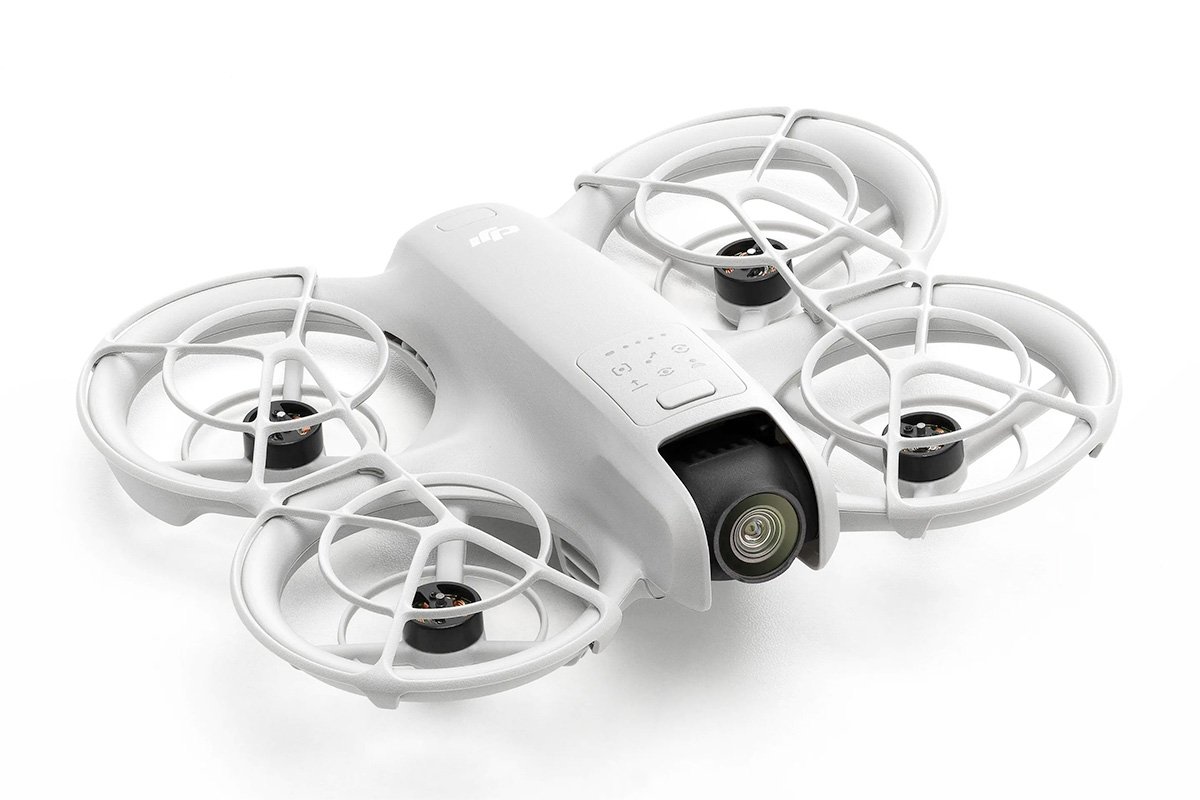
Camera and storage
For a drone this small, the DJI Neo offers impressive camera capabilities. It is equipped with a 12-megapixel (MP) 1/2-inch sensor that captures still photos and can record 4K video at 30 frames per second (fps). The Neo’s onboard storage is 22 GB, allowing it to store up to 40 minutes of 4K footage or 55 minutes of 1080p video at 60 fps. Transferring footage is easy, as it can be done wirelessly via Wi-Fi to your smartphone, or you can use a USB-C cable to transfer files to your computer or phone.
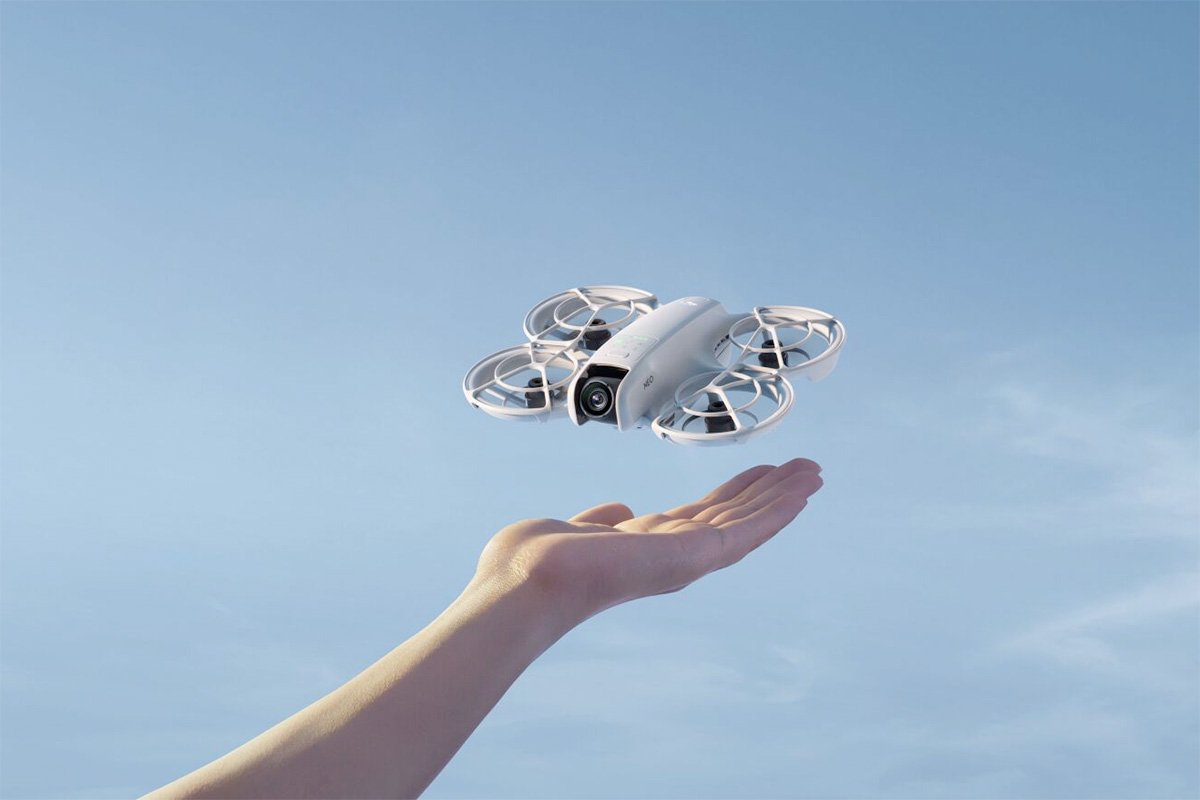
Although the Neo features only a single-axis gimbal for stabilizing up and down motion, DJI has included electronic image stabilization to help smooth out video footage. However, the lack of a more advanced gimbal means the video won’t be as smooth as that captured on DJI’s higher-end drones, which often come with a six-axis gimbal.
In addition, the Neo offers object tracking, a feature commonly found in more expensive drones. This means you can set the drone to follow a subject—such as yourself during a hike—and it will maintain focus on your face or body at a preset distance. Coupled with audio recording via your phone or DJI’s Mic 2, the Neo can serve as a portable, hands-free camera operator for vlogs or outdoor adventures.
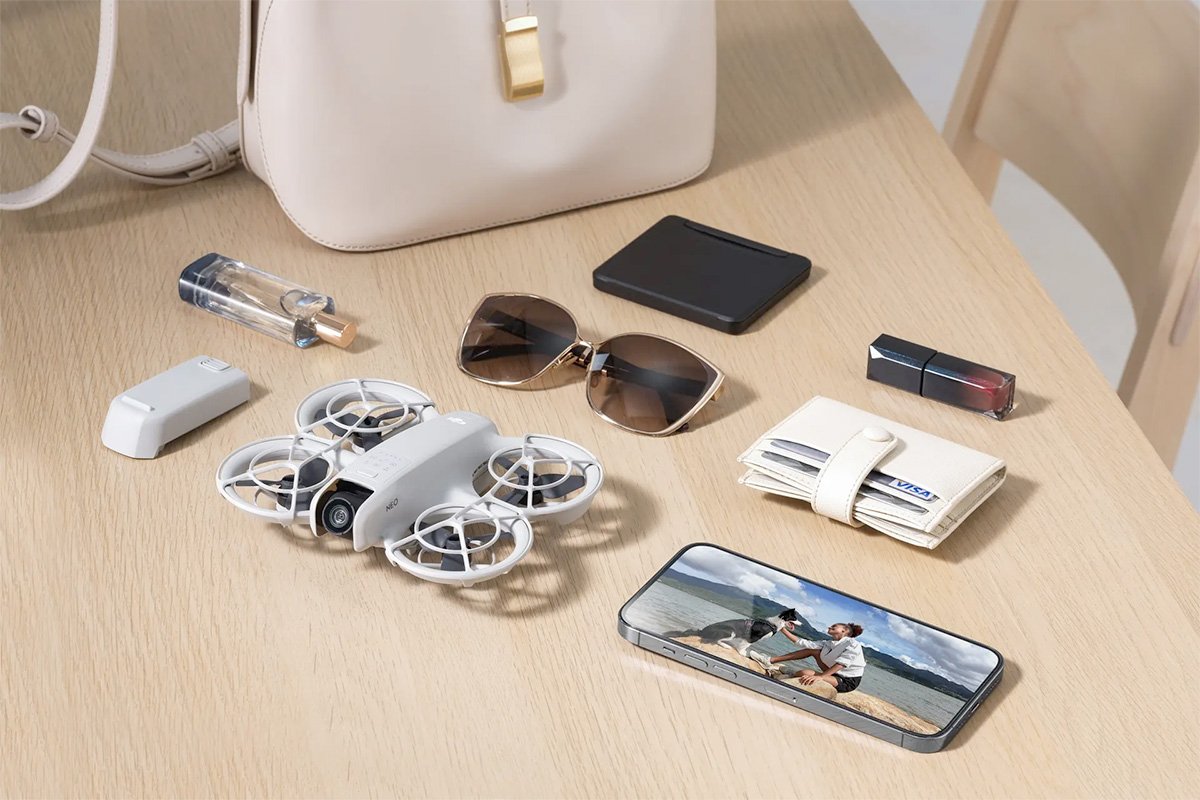
Battery life and charging
The DJI Neo’s battery life is another important consideration for potential buyers. DJI claims that the Neo can fly for about 18 minutes on a single charge, which, while not industry-leading, is decent for a drone of this size and price range. For those needing extended flight times, DJI offers a Combo package, which includes two extra batteries. With these extra batteries, users can enjoy up to 54 minutes of total flight time.
Charging the battery is straightforward, thanks to the inclusion of a USB-C port directly on the drone, allowing you to recharge it with a standard USB-C cable. The Combo package also includes a two-way charging hub that can charge three batteries simultaneously in about an hour, making it more convenient for longer sessions.
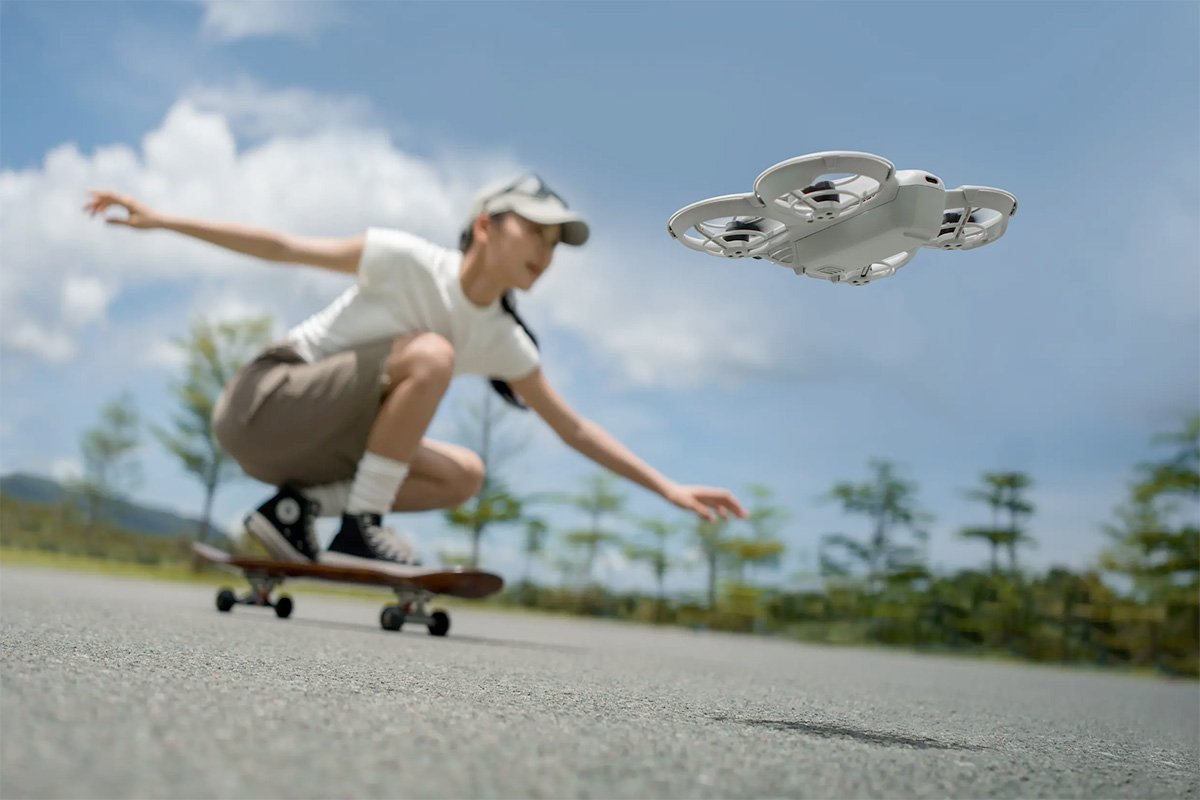
Pricing and options
At $199, the DJI Neo is competitively priced, especially given its features and capabilities. This base model includes the drone but does not come with any additional controllers. For those who want more flight time, the Combo version, which is priced at $289, includes two extra batteries and a charging hub. Both options make the DJI Neo an affordable entry into the drone market, particularly for beginners or those looking for a secondary drone to complement a larger, more professional setup.
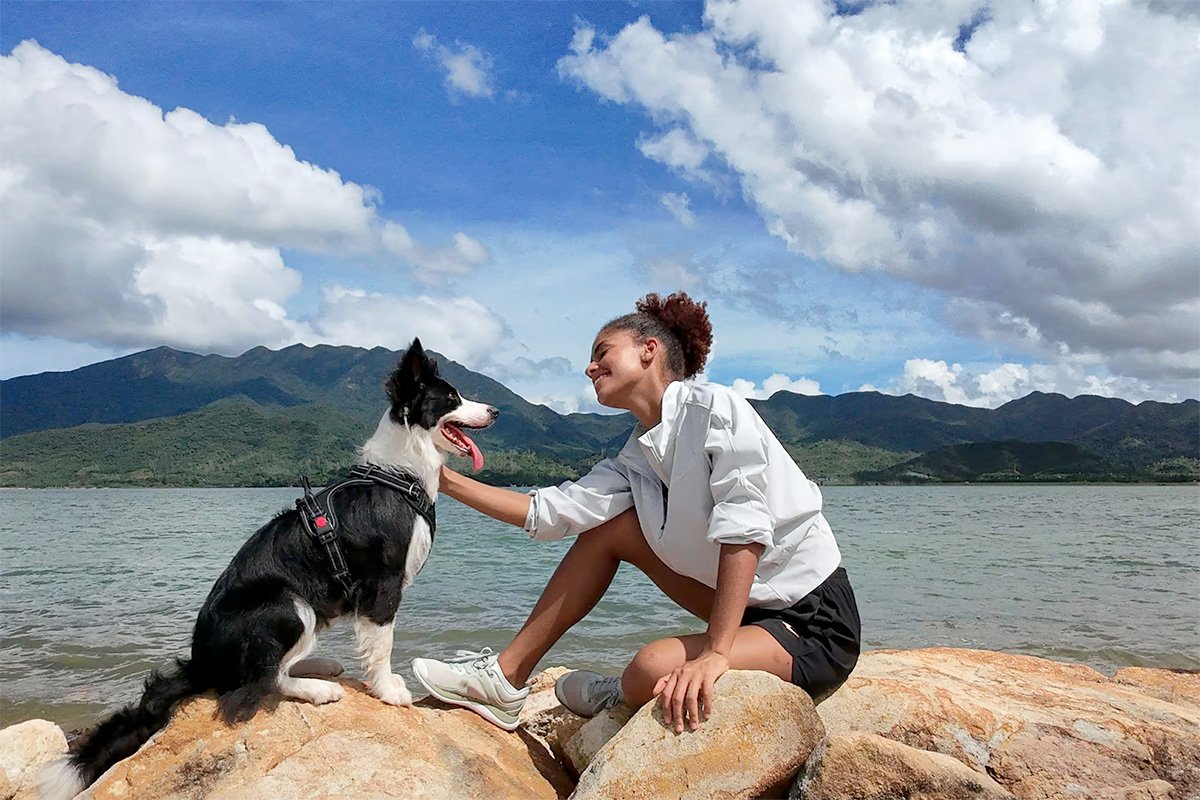
Source: DJI



